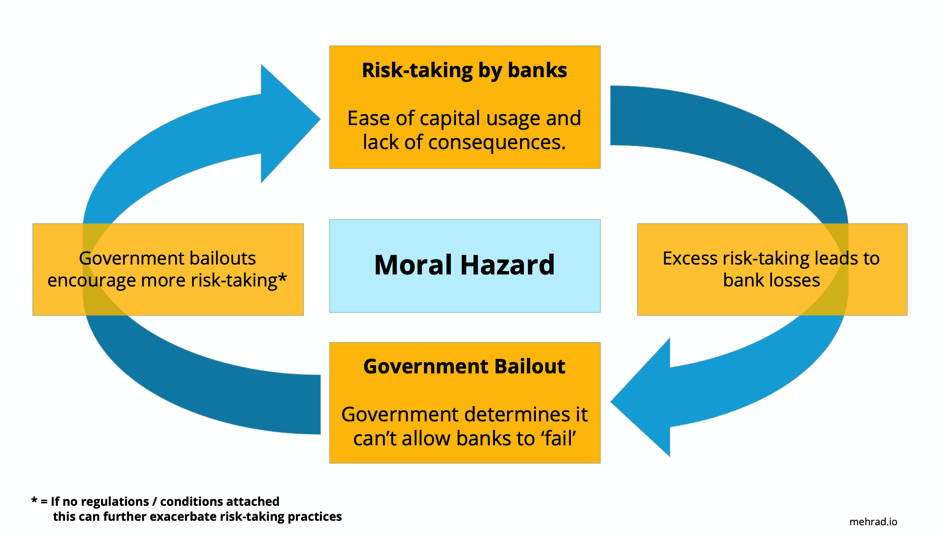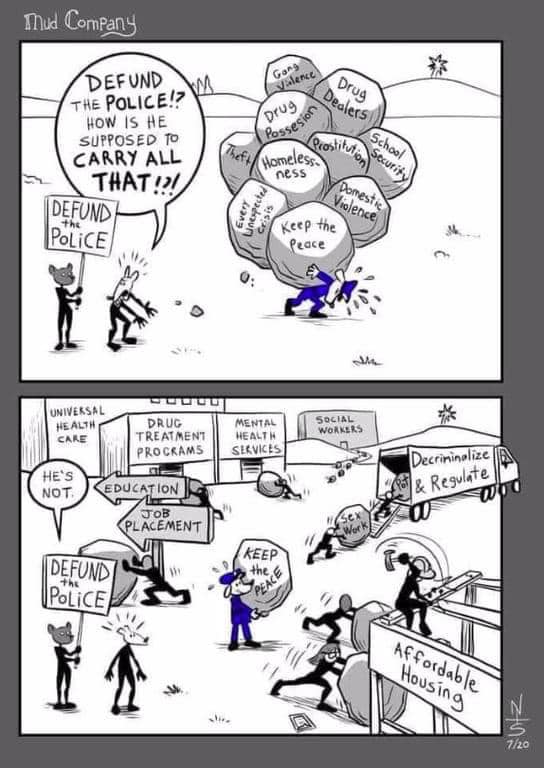It seems that every other day there is another tragedy involving the police and unarmed black men and women. Some of these incidents are recorded on smartphones and trigger a collective sense of disappointment and questions of why this had to happen.
I want to avoid discussing the intricate details of each case as each situation was unique but there is an underlying power structure that has been cultivated that breeds this kind of action and reaction. Also, I want to avoid the blame game and ‘numbers play’ that is often cited back and forth without looking at the context, some point to statistics that “white people getting killed more by police” (in suicide by cop) but that also does not consider that black people are proportionally killed at a higher rate than white people when accounting for population and other factors source according to Northeastern’s research.
There are also individuals who blame the victim for being who they were (prior crimes), where they were (in the wrong neighborhood), how they acted (should have just done ‘X’), but all these arguments shift focus away from trying to understand why would anyone even with the permission to use lethal force, would choose to do so.
I want us to just consider two factors that contribute to this problem; the first pertaining to the concept of Moral Hazard and the second, looking at the effects of perceived power. Both these factors have to do with Qualified Immunity, for which the justification was first introduced in the United States Supreme Court case of Pierson v. Ray, 386 U.S. 547 (1967). The initial reasoning was for police officers from being sued for civil rights violations under Section 1983 of the Civil Rights Act of 1871. They argued that,
“[a] policeman’s lot is not so unhappy that he must choose between being charged with dereliction of duty if he does not arrest when he had probable cause, and being mulcted in damages if he does.”
Over the years, this interpretation has expanded and applied to more and more cases where there has been a weapon discharged and the suspect has been killed.
Moral Hazard
So let’s begin by looking at Moral Hazard, in economic terms, this occurs when an entity has an incentive to increase its exposure to risk because it does not bear the full costs of that risk. In economic terms, it is often associated with how the big banks were bailed out during the financial crisis, and if new regulations weren’t set in place as a condition of those bailouts, it would lead to a moral hazard scenario.

Basically, an individual makes a decision about how much risk to take, while another individual bears the costs if things go badly, and the party insulated from risk behaves differently from how it would if it were fully exposed to the risk. We are able to manipulate how an individual might act based on their understanding of the risks and consequences. To apply this back to events surrounding police shootings, Qualified Immunity acts as this external factor that manipulates an officer’s actions. If I know beforehand that the risks of my actions have fewer repercussions on me, I will inadvertently tend to err-on-the-side of acting without considering the cost on the other party as there is no perceived downside to me taking the action (shooting a suspect) vs. me taking the risk and something happening to me.
Qualified Immunity creates an imbalance, either way, someone will always want to defend themselves, that’s just human nature. Qualified Immunity takes away the risky consequences of inadvertently killing an unarmed individual. There is no potential risk exposure or consequence to an officer’s use of lethal force on a suspect. In a way making a police officer at that moment, the judge, jury, and executioner.
Perceived Power
The second factor at play is the perceived power that comes with the badge and how that adds an additional level of a power imbalance to any confrontation. The Stanford Prison Experiment was the most publicly examined and scrutinized scenario wherein perceived powers were seen to play a role in how it transforms the behavior of individuals. One of the biggest flaws identified with the experiment was that the guards were told to ‘act tough’, which in actuality is how many police trainings are conducted. A police-supported blog points out how that acting tough is part of the culture and is considered to be a needed part of the culture when dealing with potential criminals.
So now what? We need to re-examine how Qualified Immunity works and how it needs to be adjusted to ensure it isn’t creating a moral hazard. We need all government officials to question their decisions especially when it comes to the life of another individual. Even if the repercussions mean an investigation into whether an action was justified and if they can lose their ability to be made liable whether that is through a lawsuit or loss of their job. Proponents of qualified immunity, point to scenarios where an officer is attempting to do the right thing and makes a mistake, but if that is the argument then shouldn’t an investigation be done to clear them of any wrongdoing? The intended purpose of Qualified Immunity is to ensure police officers aren’t subject to civil suits for rightfully performing their jobs, then we just require an unbiased job review. The same exists in malpractice suits, that range from medical, architectural, lawyers, and financial professionals; all these professions have drastic effects on one’s life, hence we as a society believe there should be some level of accountability. However, this level of accountability starts to get blurry when it comes to police, creating a double standard narrative violation. Why do we have medical malpractice when we know the intent of the majority of all doctors is to do no harm, yet we still have this precaution to hold those who engage in negligent or incompetent behavior to be held accountable. Qualified Immunity almost is used as a blanket term and justification to also hide malpractice in carrying out the duties of the law by police officers. Thus setting up the situation of Moral Hazard within policing.
In the United States, the doctrine of qualified immunity grants government officials performing discretionary functions immunity from civil suits unless the plaintiff shows that the official violated “clearly established statutory or constitutional rights of which a reasonable person would have known”. However, the way in which the doctrine of qualified immunity being applied is almost as though it’s absolute immunity and a license to kill.
We have to be able to trust in those individuals who are performing these acts that contribute to our society’s greater good. Good actors need to speak up against the bad actors.
Here are some incremental solutions to consider resolving this problem:
- Police officers being part of the communities, as in, live in the communities that they police. When you have an affiliation with the community you are less likely to want to dis-enfranchise your own people. A requirement that each district hires locally? Possibly. (This doesn’t solve the ‘that person was jogging in the wrong neighborhood’ problematic issues though)
- Whistleblowers, unions, and reporting abuse – good people want to do good, but they can also be manipulated through social forces such as peer pressure and the brotherhood bond of a dangerous line of work, coupled with unions. If whistleblowing protections and practices are put into place it needs to be transparent in the process (knowing how reports will be dealt with, third party reviewers from the community, and judicial powers.) On a side note, isn’t it interesting how Unions are seen as bad by those who support liberties for businesses and business owners, yet again make an exception for certain groups, such as police? So do you or don’t you support Unions, in the sense collective bargaining does work? But those powers should not exist for service industry workers or manufacturing workers?
- Body Camera as the Norm – The advent of body cameras was to bring more transparency to police interactions with civilians, however, on many occasions body cameras have failed to be on without repercussion. If the conduct during the interaction is lawful and just, then there should be no issue with keeping the body cameras on to help defend any police officers who might be wrongfully accused of misconduct. Also, the perceived thought of my actions will be reviewed, I’m more willing to err on the side of doing right and avoid misconduct.
- Refining Police Duties – The faux-label game of referring to ‘re-allocation of police budgets’ to mean ‘defunding the police’ is a silly game of “got you” politics, we need to look into issues in depth and come to understand, many of these calls for re-allocation of police budgets are measures to improve the lives of police officers and ensure better outcomes when it comes to policing. I came across this comic that perfectly summarizes the miscommunication that often comes across when people hear ‘defund the police’, it’s to re-allocate funds so the police officers don’t have to engage in practices that aren’t within their domain and are already ill-equipped to handle.

We don’t expect the police to also be paramedics and doctors, so why do we expect them to do tasks that aren’t ideal for them. We want specialists with specific training handling specific scenarios.
No matter what your politics, one should read the justice policies outlined by this candidate, without bias and just consider what the policies are saying. Protection of police officers and ensuring justice is served for all people in our society, equally.
I began drafting these thoughts a while back, but since then, the latest Breonna Taylor case developments have further re-awoken this need to discuss and address these issues. It’s almost seen as an insult by those looking for answers when the only charge that came from the Breonna Taylor investigation was that the shots that didn’t hit her were the ones that were an issue for one of the officers involved”. The additional grand jury secrecy aspects and controversy around it further indicate that justice is being played by a different set of rules in this case.
If we want to talk about the intricacies of this specific case, we would have to have a larger discussion on the Second Amendment. This case has a lot of complexities in which a proper open investigation with full legal due diligence would bring up, but there are multiple red flags raised about how this investigation and justice is being carried out. Even if only for perception purposes, we should strive to ensure that the perception of the law is just, the moment law and justice are thrown into question and nothing is done to address these discrepancies, we start to split our definition of law and order. We have disparate justice being carried out.
This is an absolute shame… every incident should not just be used as a sense of outrage but as an opportunity to re-examine aspects of the system as to why this happened?
When handling marketing for a business, marketers review marketing analytics, to identify and use insights to understand why someone abandoned their cart and didn’t complete a purchase.
If the system you designed somehow failed you want to analyze and improve upon it.
We are always optimizing when it comes to startups and business tactics but for some reason, we decide we are happy with the way things are when it comes to civic matters. If we are unwilling to even bother reviewing each failed police interaction as just that, a failure that needs to be resolved by society, for our society, we are failing as a society. We need to do better and we can do better.
